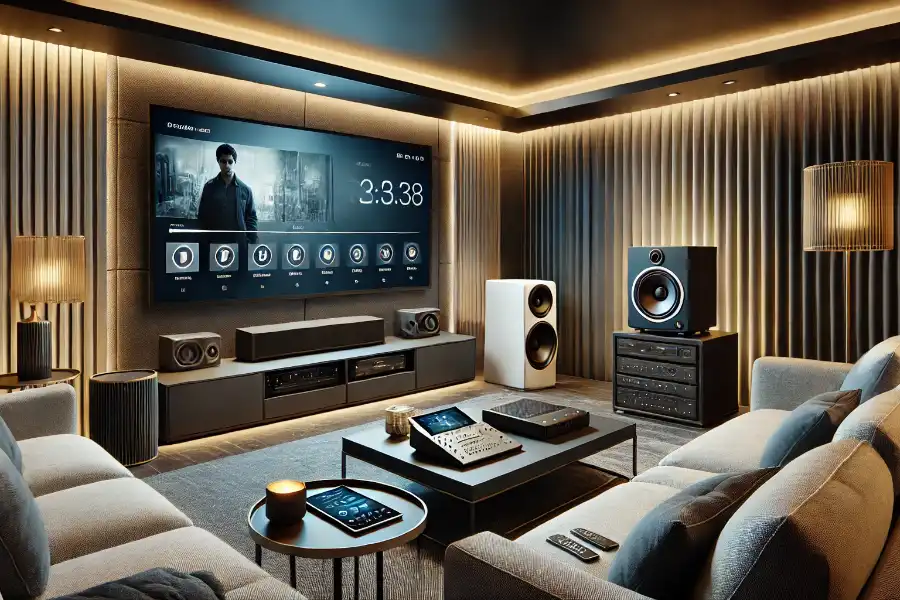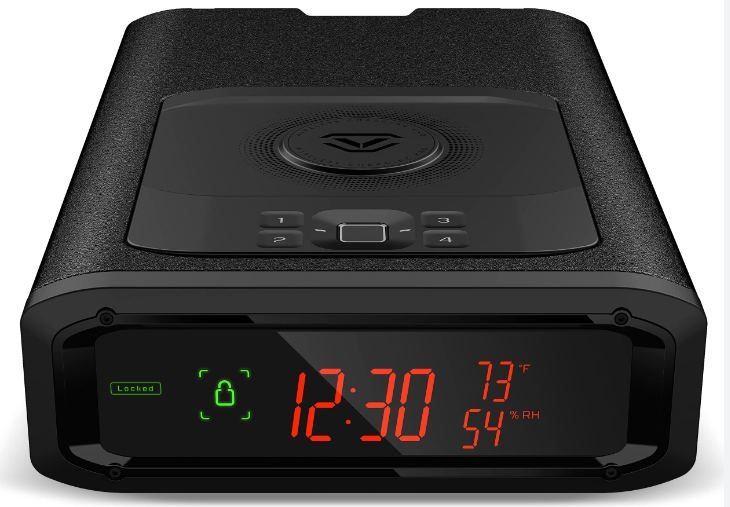Enjoy a Cinema-Grade Experience: A Comprehensive Guide to Smart Home Theater Systems

What is a Smart Home Theater System?
A smart home theater system is an integrated entertainment solution that utilizes modern technology to deliver a cinema-grade viewing and audio experience. It typically includes devices such as smart TVs, projectors, surround sound systems, Blu-ray players, and smart control systems. A smart home theater not only provides high-quality video and audio experiences but also offers easy operation through voice control and mobile device remotes.
Advantages and Disadvantages of Smart Home Theater Systems
Advantages:
- Immersive Experience: Smart home theater systems create realistic audiovisual effects with high-quality sound systems and high-definition display equipment, making users feel like they are in a cinema.
- Convenient Operation: With smart control systems, users can easily control the theater equipment, such as turning devices on and off, adjusting the volume, and selecting videos through voice assistants or mobile apps, greatly enhancing convenience.
- Device Interconnectivity: Smart home theater systems can integrate with other smart home devices, such as smart lighting and curtains, providing a comprehensive smart home experience.
- Rich Content: By connecting to the internet, users can easily access various streaming services, watching a vast array of movies, TV shows, and other entertainment content.
Disadvantages:
- High Cost: Establishing a high-quality smart home theater system requires a significant investment, especially for users pursuing the ultimate experience.
- Complex Installation: The installation of a smart home theater system involves the connection and setup of multiple devices, which can be complex and may require professional technical support.
- Device Compatibility: Different brands’ devices may have compatibility issues, affecting the system’s stability and user experience.
How to Choose the Right Smart Home Theater System?
- Set a Budget: When selecting a smart home theater system, it’s essential to determine your budget first. Choose the right equipment based on your budget to avoid overspending on high-end configurations.
- Device Compatibility: Ensure compatibility among the chosen devices to avoid issues during subsequent use. Choosing devices from the same brand or those with good interconnectivity can reduce such concerns.
- Focus on Audio Quality: The audio quality is the core of a smart home theater system, so special attention should be paid to the quality of the sound system when making a selection. Surround sound systems, subwoofers, and other equipment can significantly enhance the viewing experience.
- Consider Room Size: The configuration of the home theater system should be adjusted according to the size of the room. Compact equipment is suitable for small spaces, while larger spaces require more powerful audio and display devices.
- After-Sales Service and Installation Support: Choose brands and vendors that offer good after-sales service and professional installation support to ensure the system runs smoothly and receives timely maintenance.
Major Brands in Smart Home Theater Systems Today
- Sony: Known for its excellent display technology and high-quality audio equipment, Sony’s smart home theater systems are highly regarded in the industry, ideal for users seeking top-tier audiovisual experiences.
- Samsung: Samsung’s smart TVs and audio equipment are known for their outstanding performance, with strong system integration and user-friendly operation, making them suitable for consumers who value user experience.
- Bose: As a leader in the audio field, Bose’s home theater systems offer unparalleled sound quality, especially in creating immersive audio effects.
- LG: LG provides a full range of home theater equipment, from smart TVs to audio systems, known for their high cost-performance ratio and stable quality, making them ideal for budget-conscious users seeking high-quality experiences.
- Sonos: Specializing in wireless audio systems, Sonos devices have strong compatibility and support multi-room connectivity, perfect for users who enjoy music and movies in different rooms.
Extended Information: How to Optimize Your Smart Home Theater Viewing Experience?
- Lighting Control: Proper lighting can enhance the viewing atmosphere, and it is recommended to use smart lighting systems that synchronize with the home theater system, automatically dimming the lights during viewing.
- Acoustic Treatment: The room’s acoustic environment significantly impacts sound quality. Using materials such as acoustic panels and carpets can reduce echo and improve sound quality.
- Network Connection: Streaming media playback requires a high bandwidth network, so ensure that the home theater system has a stable high-speed internet connection to avoid buffering during viewing.
- Regular Maintenance: Regularly clean and check the equipment, ensuring that the projector bulbs, sound system, and other devices are in optimal condition. Update the equipment’s firmware to access the latest features and optimizations.















Post Comment